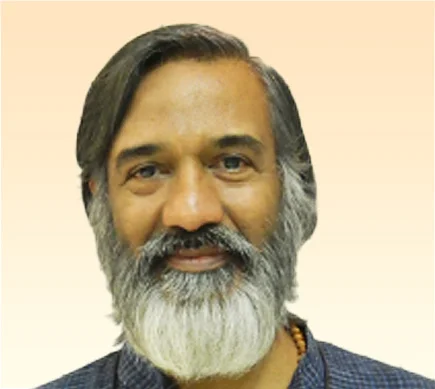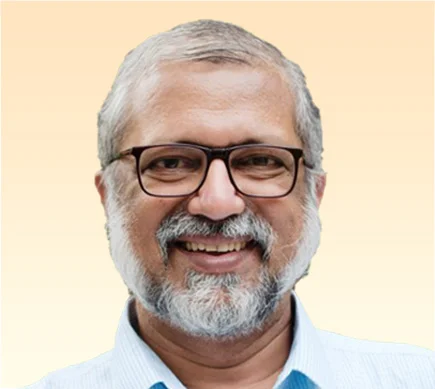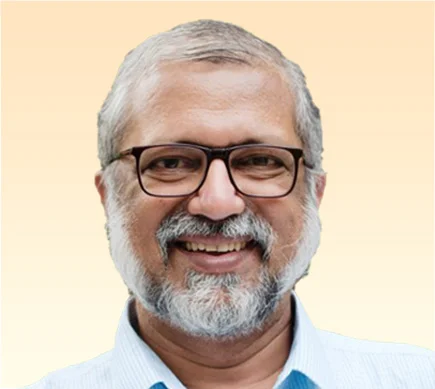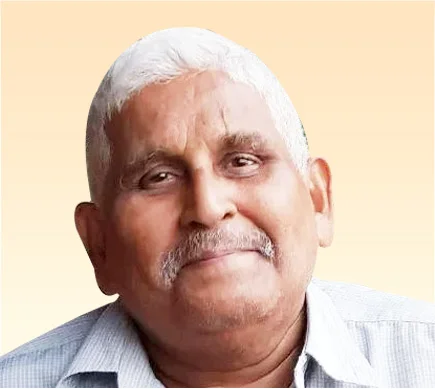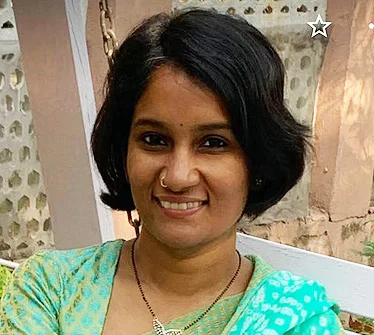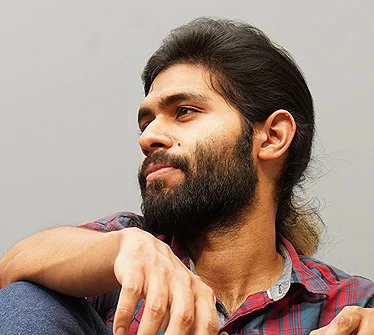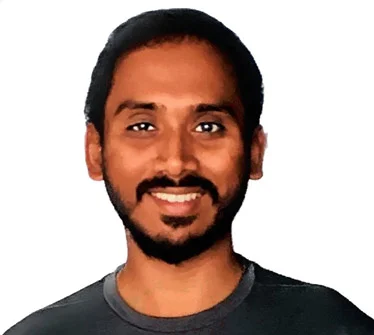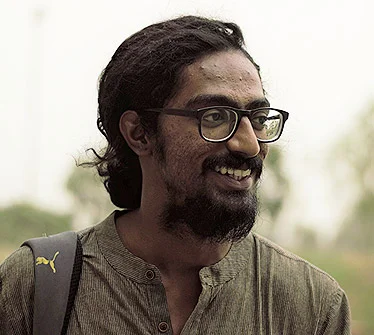One-year Post Graduate Diploma Course in
Facilitating Governance Reform
Why Governance Reform
Restoring Dignity, Revitalising Development, Reclaiming Democracy
The 15th century saw the advent of European colonialism, which expanded during the industrial era and controlled almost 84% of the globe by 1914. By the end of World War II, the weakened colonial powers started retreating; by the 70s, nearly every major subjugated colony had asserted its independence. However, the context for this historic act varied from country to country. While some were fully colonised at the time of independence, others were partially colonised, like many nations in Asia, including India. This meant that semi-colonised countries still had vestiges of their traditional, indigenous knowledge systems, values and culture co-existing with modern colonial structures, institutions, and the larger paradigm and worldviews behind them. This inherent contradiction is what lies at the heart of governance failures, which eventually manifest in the more visible forms of backfiring of policy and breakdown of administration.
The contradictions between indigenous and colonial, between traditional and modern cannot be expected to resolve itself with time. It has to be mediated carefully to allow a synthesis of the functional aspects of each paradigm while leaving out their dysfunctional aspects. Moreover, these contradictions operate at multiple levels:
- The SELF (attitudes, mindsets and perspectives),
- The GROUP (identities, roles and behavior),
- The INSTITUTION (processes, culture and vision), and
- The SYSTEM (policies, structures and value-system).
Add to this, the more visible contradictions a young democracy like India faces in terms of balancing economic development alongside reconciling social inequities; and one is left with a set of complex, dynamic, and deeply interconnected problems. Problems that can’t be solely attributed to behavioral issues or institutional shortcomings. Problems that cannot be solved by mere awareness drives, skilling campaigns, or investment in technology and infrastructure. Hence, the need for a blended approach, combining aspects of both business management and public administration under the broader umbrella of ‘governance reforms’. This does not imply governance is something exclusive to the government, but rather, includes perspectives from the most organised and specialised institutions to the most marginalised and excluded communities.
Today, we have an army of skilled consultants and passionate social workers engaged as much in the development sector as much in the political bureaucracy; yet there hardly seems to be any shift in the democratic governance of our country. The reason is very few of them have the knowledge and skills to simultaneously:
- Change the mindsets of individuals and communities,
- Shift the perspectives of functionaries and institutions, and
- Democratise culture and decision-making within the bureaucracy.
This is the gap that Barefoot Academy seeks to fill.
Course Details
Restoring Dignity, Revitalising Development, Reclaiming Democracy
Course Overview
The 1-year PG Diploma in Facilitating Governance Reforms is a specialised program designed for individuals who aspire to play an active role in promoting ‘good governance’ and facilitating governance reforms. The course provides a comprehensive and critical understanding of governance structures and systems, policy, public finance management, ethics, and consensus-building. All of this is grounded in an ideal of creating an inclusive, equitable, and sustainable path for development that simultaneously strengthens democracy, and ensures dignity for all.
A unique combination of academic learning along with experiential explorations on themes like Dignity, Development, and Democracy not only builds key concepts but also makes them relevant and relatable by building off each participant’s lived experiences regarding the said topics. Another unique aspect of this course lies in its dialogical and dialectical method of conducting lectures, where information exchange is a two-way dialogue and consensus on any topic is arrived at in an iterative, participative way, whilst allowing for divergent or dissenting views to co-exist.
Course Methodology
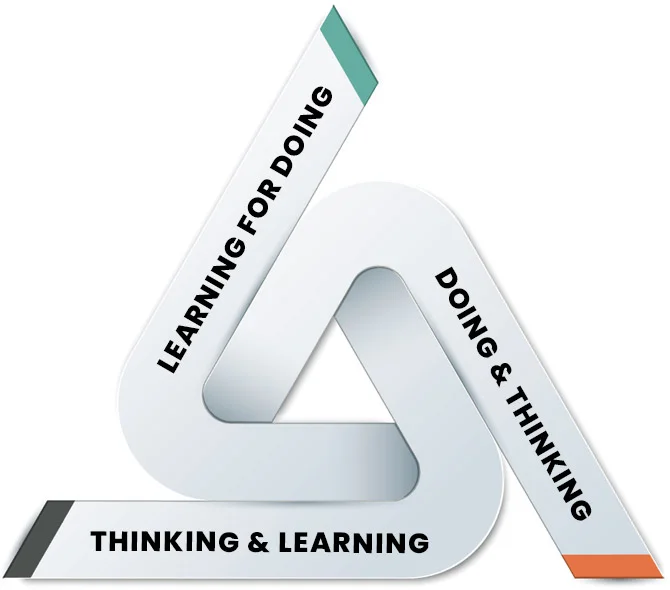
This PG Diploma Course is structured to offer two parallel learning methodologies to create process-based facilitators (hereafter referred to as `Change Agents’). While behavioural and facilitation techniques would help learners gain critical insight into their field of choice, the theoretical and political approaches to study development and democracy would help them hone an interdisciplinary framework of analysis across a wide range of sectors. Thus, after going through the course, a Change-agent would possess both the skills and finesse of a specialist while simultaneously having the versatility and adaptability of a generalist.
Keeping in mind the fundamental axioms of ‘adult learning’ or ‘andragogy’ which posit how:
- Adults need to know why they need to learn something,
- Adults need to learn experientially,
- Adults approach learning as problem-solving, and
- Adults learn best when the topic is of immediate value;
the following twin methodologies have been designed:
- Experiential learning; that triggers an intense, self-reflective process that helps make sense of one’s lived reality and facilitates honest, non-violent dialogue at the level of Self, Group, Community and the System; resulting in clarity of purpose.
- Conceptual learning; that sparks off a critical dialogue on narratives, anecdotes, and perspectives that help review mainstream (discover alternative) theory, models and frameworks in local (global) socio-economic, political, cultural, and ethical contexts.
Needless to say, what participants learn in terms of both content and methods, doubles up as a training methodology for them to hone and apply as Change-agents in their respective domains of work. The basis for this kind of knowledge and skill transfer is inspired by the work of Paulo Freire, Franz Fannon, Ivan Illich, and other critically acclaimed educationalists from the 70s.
It starts with the premise of ‘learning’ solely for the sake of ‘doing’ or applying the learnings in any given context. And only through ‘doing’ does ‘learning’ actually produce meaning and relevance beyond a mere intellectual exercise. This is where ‘thinking’ or reflection happens, as one gains new insights trying to put theory into practice. Finally, this ‘thinking’ paves the way for newer ‘learning’ that is more tailored to the context. With each repetition, knowledge expands in a spiral.
Course Structure
The Spiral Learning methodology is also reflected in how the course is structured across four modules spaced across the span of a year. The ‘Learning’ part happens during a 1-2 week-long residential Direct Learning phase with all the participants and the core faculty at strategic locations around the country. The next two and a half months (approx.) are what constitute the Distance Learning phase. This is where the ‘Doing’ takes place, as participants engage in independent research or fieldwork on select themes and begin formulating assignments on the same. Finally, periodic virtual meetings are organised with other participants and a dedicated faculty member to ensure a space for ‘Thinking’ or reflection, whereby knowledge/skills can be revised and a peer-support group can be leveraged to refine assignments from time to time. The same structure is repeated across all four modules, every three months, till the end of the year.
The thematics for each of the four trimesters are as follows:
- Module 1: The Change Agent Prepares
(In doing WHAT I’m doing, WHAT am I really doing?) - Module 2: Self, Identity, and Dignity
(WHO am I?) - Module 3: Self, Systems, and Development
(WHERE am I? WHY am I here?) - Module 4: Self, Collectivities, Institutions, and Democracy
(WHO are we? WHY are we here?)
Objectives and Credits
Restoring Dignity, Revitalising Development, Reclaiming Democracy
Learning Objectives
Module 1 : The Change Agent Prepares
Experiential Help participants:
- Reflect upon the ways one looks at the ‘self’ and the ‘world’.
- Discover the structures of emotions and how thought and action are shaped by them.
- Learn how to introspect upon the dynamics of the `self’ and the ‘other’ during one’s interactions.
Conceptual Help participants:
- Reflect on the ‘self’ and the ‘collective’, as part of explorations on personhood, and citizenship.
- Interrogate the diverse meanings of dignity, development, and democracy.
- Discover and define the `social-self’ with the `other’ across diverse contexts of economics, politics, and community.
- Explore the qualities of an `emancipatory agent’ and the requirements to become a potential `change catalyst’.
Module 2: Self, Identity, and Dignity
Experiential Help participants:
- Become aware of the process of identity formation.
- Explore the nature of role-taking and how identity influences role-taking.
- Discover the sources of new action and potential within oneself.
- Examine the roots of swa-bhimaan, swa-lamban and swa-tantra.
Conceptual Help participants:
- Critically explore the social, political, and legal construct of dignity across social and state settings.
- Examine the continual dialectic between the dignity of the ‘individual’, the dignity of the `other’, and the dignity of the `community’ vis-à-vis self-reliance, self-respect, and self-determination.
- Critically assess the impact of leaders like Gandhi, Martin Luther King, Mandela, Che Guevara, Jyotiba Phule, Ambedkar, Periyar, and others on people, subalterns, and collectivities.
- Deepen the spirit of freedom and dignity in their lives.
Module 3: Self, Systems, and Development
Experiential Help participants:
- Understand the ‘self’ from an interconnected systems perspective.
- Explore the self-system interface and the dynamics of structural processes.
- Understand the dynamics of authority and power and its effect on the conscious and the subconscious.
Conceptual Help participants:
- Critically examine the dialectical dynamics between the inner world of vision, values and ethics and its interaction with the external world of structures, materials and resources.
- Examine the meaning of `development’ as expanding freedoms and choices vis-avis material advancement and progress.
- Explore the roles played by individuals and collectives in the `development process’ vis-à-vis the state and other elites.
- Analyse the impact of development processes on people, society, and the state.
- Gain an understanding of diverse theories of development and impact studies of developmental projects/programs.
- Develop an acumen for analytical tools that help study and critically evaluate `development’.
- Explore various governance paradigms vis-à-vis dignity, development, and democracy.
Module 4: Self, Collectivities, Institutions, and Democracy
Experiential Help participants:
- Explore the macro-realities of collectives and the influence of community on identities.
- Understand the nature of large group dynamics.
- Learn the underpinnings of designing experiential workshops: What makes a process facilitator?
Conceptual Help participants:
- Explore the varied meanings and dynamics of `democracy’; from personal and collective experiences to larger social, professional, institutional, and state systems.
- Gain a political, social, and culturally grounded understanding of varied meanings, experiences and impacts of `democracy’ and democratic systems on people, institutions and collectivities.
- Critically examine the constitutional, legal, political, and historical underpinnings of democracy and the roles played by varied actors to influence change, inside and outside the system.
- Explore the relationship between democracy, citizenship, and global commons in terms of respecting the dignity of communities and democratising development within the State.
- Build awareness of the symbiotic relations between democracy, acknowledgment of the global commons, and global citizenship.
Distribution of Credits
| Module | 1 | 2 | 3 | 4 |
|---|---|---|---|---|
| Description | The Change Agent Prepares | Self, Identity, and Dignity | Self, Systems, and Development | Self, Collectivities, Institutions, and Democracy |
| Direct Learning Credits | 5 | 5 | 5 | 5 |
| Evaluation | Journal; Essay on emerging perspectives on the Self; Book review |
Essay on the notion of dignity in social sciences; Narrative Exploration of Self | Study of systems dynamics in a workplace vis-à-vis different paradigms of development | Essay on dynamics of local & national politics on community and belonging |
| Distance Learning Credits | 5 | 5 | 5 | 5 |
| Evaluation | Journal; Essays; Reports of fieldwork; Book review | Impact study of local change or transformative change-agent on communities | Critical study of the system vis-à-vis dignity, democracy & development | Report of the contemporary case of deepening democracy |
| Total Credits (40) | 10 | 10 | 10 | 10 |
Course Faculty
Restoring Dignity, Revitalising Development, Reclaiming Democracy
Founding Faculty
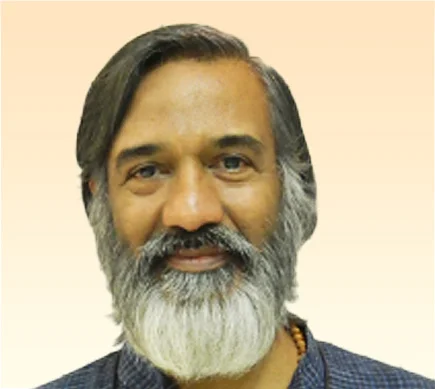
Shri Raghu Ananthanarayanan
Co-founder, Sumedhas, Barefoot Academy, Ritambhara Ashram, Center for Consciousness Studies and Inner Transformation
Learning Facilitators
Guest Lecturers
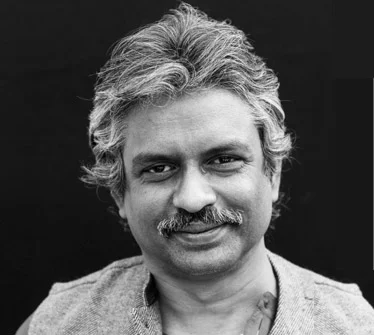
Anant Maringanti
Researcher, Author, Activist
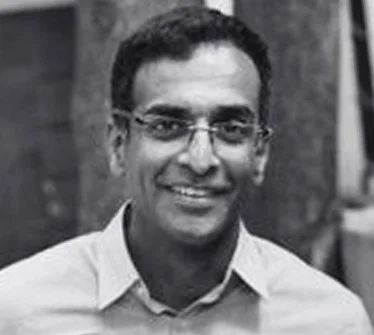
Arvind Narrain
Advocate, Author
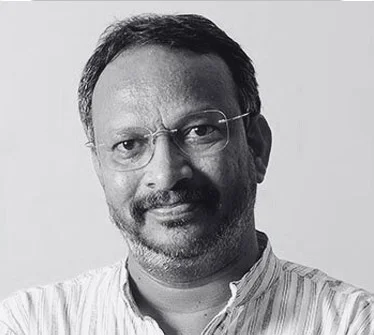
Bezwada Wilson
Social Activist
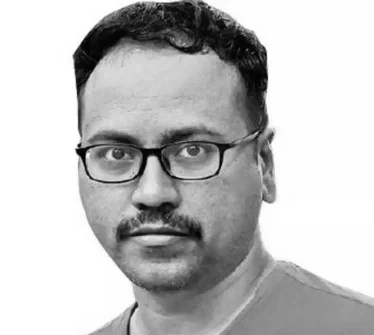
Jayaram Venkatesan
RTI Activist
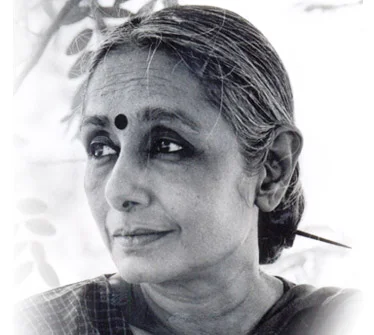
Aruna Roy
Former-IAS
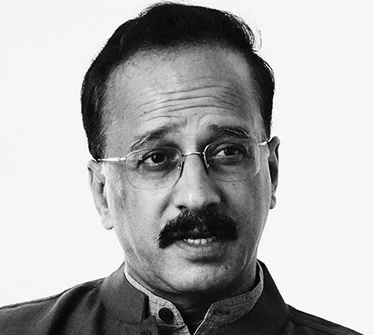
Devinder Sharma
Public-policy Analyst
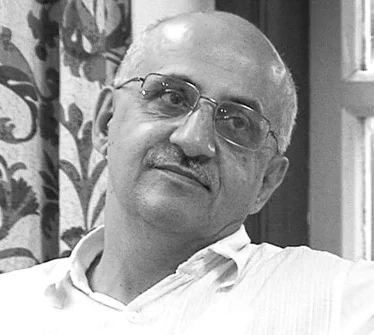
Harsh Mander
Former-IAS, Author
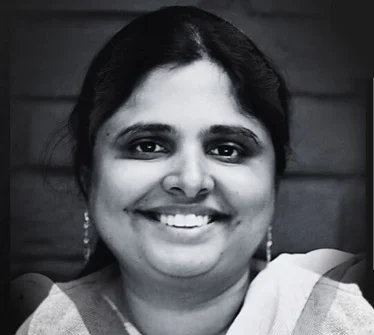
Dipa Sinha
Professor, Researcher
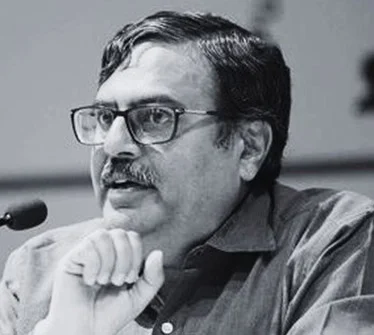
Dr. Abhay Shukla
Public Health Expert
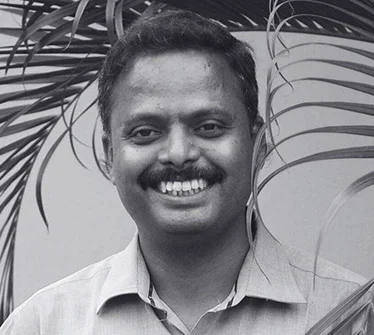
Saravanan K
Grassroots Worker
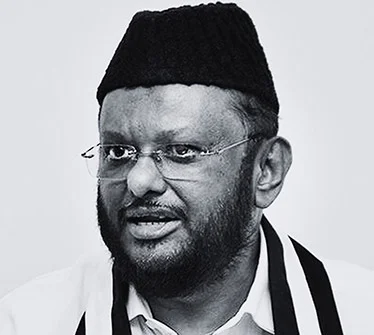
M.H. Jawahirullah
MLA, Tamil Nadu
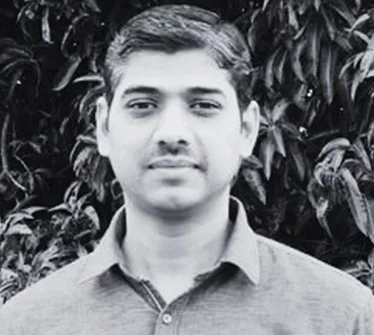
Nandakumar S
Social Worker
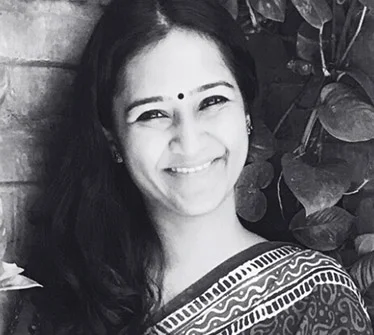
Arpita Bisht
Professor, Researcher
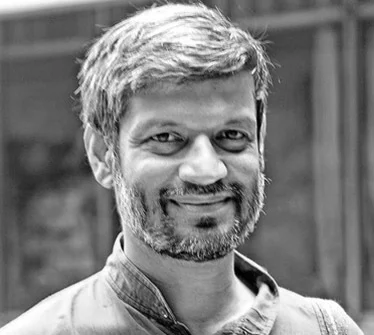
Nikhil Dey
Social Activist
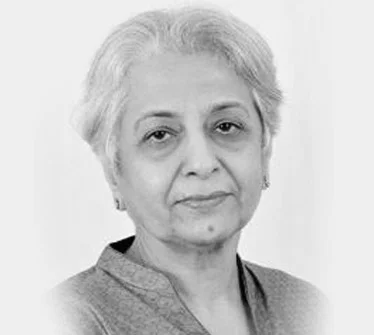
Niraja G. Jayal
Political Scientist
Post-Course Opportunities
Restoring Dignity, Revitalising Development, Reclaiming Democracy
Upon successful completion of the 1-year PG Diploma in Facilitating Governance Reform (PGDFGR), participants will gain a comprehensive understanding of governance systems and acquire the necessary skills to facilitate effective governance reforms. This program equips graduates with valuable expertise that can open doors to various exciting career opportunities. Participants can explore the following post-course opportunities:
Governance Consultant: Graduates can work as governance consultants, providing expert advice and assistance to governments, non-governmental organisations (NGOs), and international development agencies. As governance consultants, individuals can contribute to designing and implementing governance reforms, conducting assessments, and developing strategies to enhance governance effectiveness.
Policy Analyst: With a deep understanding of governance frameworks, graduates can pursue roles as policy analysts in government departments, research organisations, or think tanks. Policy analysts play a crucial role in analysing and evaluating policy initiatives, conducting research, and providing evidence-based recommendations to inform decision-making processes.
Project Manager: The program equips participants with project management skills, enabling them to take up roles as project managers within government agencies or development organisations. As project managers, graduates can lead and oversee governance reform projects, ensuring their successful implementation and monitoring progress toward desired outcomes.
Development Officer: Participants can explore opportunities as development officers in international organisations, such as the United Nations, World Bank, or regional development banks. Development officers help in formulating policies and programs that promote good governance practices, support capacity-building efforts, and drive sustainable development initiatives.
Advocacy and Civil Society Roles: Graduates may pursue careers in advocacy and civil society organisations, where they can actively engage in promoting transparency, accountability, and participatory governance. They can work as policy advocates, community organizers, or program coordinators, focusing on driving positive change and empowering marginalised communities.
Research and Academia: The program prepares participants for research roles and offers a foundation for pursuing further academic studies. Graduates can explore opportunities in research institutions, universities, or think tanks, conducting research on governance issues, publishing scholarly articles, and contributing to the academic discourse on governance reforms.
Government Positions: The knowledge and skills gained from the program make participants well-suited for various roles within government institutions. Graduates can pursue positions in public administration, civil service, or governance-focused departments, contributing to policy formulation, implementation, and evaluation.
These post-course opportunities are just a glimpse of the potential career paths available to graduates of the PGDFGR course, enabling them to make meaningful contributions to policy, governance practices, and change management interventions in diverse sectors and contexts.
Admission Details
One-year Post Graduate Diploma Course in
Facilitating Governance Reform
Restoring Dignity, Revitalising Development, Reclaiming Democracy
Eligibility: Participants should at least have a basic Graduate Degree from a recognised University in any stream. They should have at least 3-5 years of experience working with either communities, government institutions, civil society organisations, corporations, or representative/elected bodies. They should also possess working competence in English, and be able to obtain statutory leaves from their respective organisations during the ‘Direct Learning’ phases of the course.
Fees: INR 59,000 + 18% GST (Total INR 70,092)
Duraition: 1-year
Batch Size: 25
How to Apply: To complete your application, you will need to fill out and submit an Online Application Form. Please be prepared to provide the following information:
- Educational qualifications
- Employment history (if applicable)
- Any awards or recognitions
- Two essays including an SOP
- Details of two recommenders (with at least one professional recommendation)
Do note that your academic record, employment history, and essays hold 60% weightage for your selection assessment. Please feel free to reach out to us in case you face any difficulty in filling out the application. Your application will be reviewed once you complete and submit the form.
Office of Admissions:
Dr. V Suresh
Ph: +91 9100850851
Email: rightstn@gmail.com
For queries, contact:
Hema Yarrapothu
Ph: +91 8790915467
Email: yohema@gmail.com
